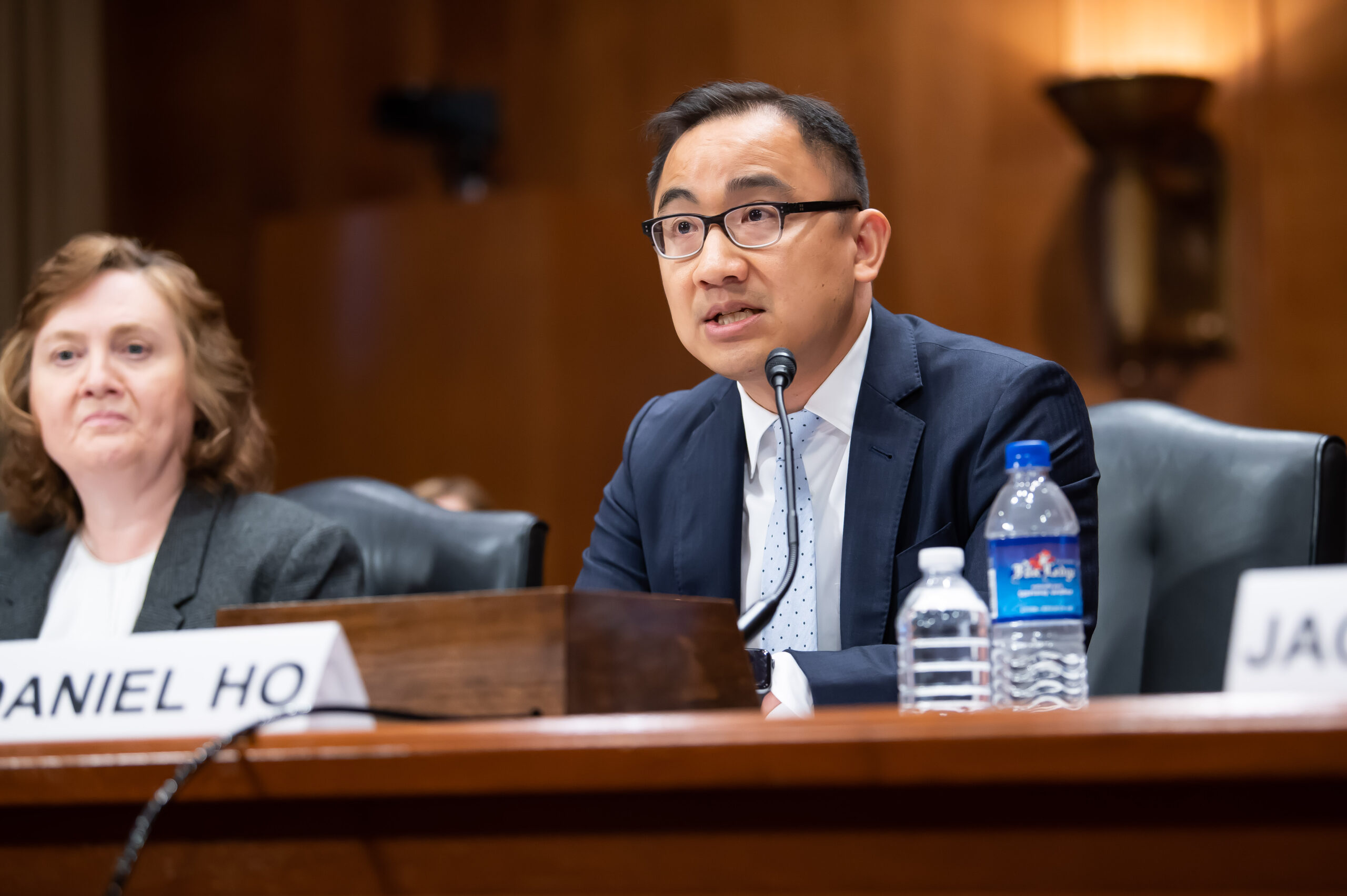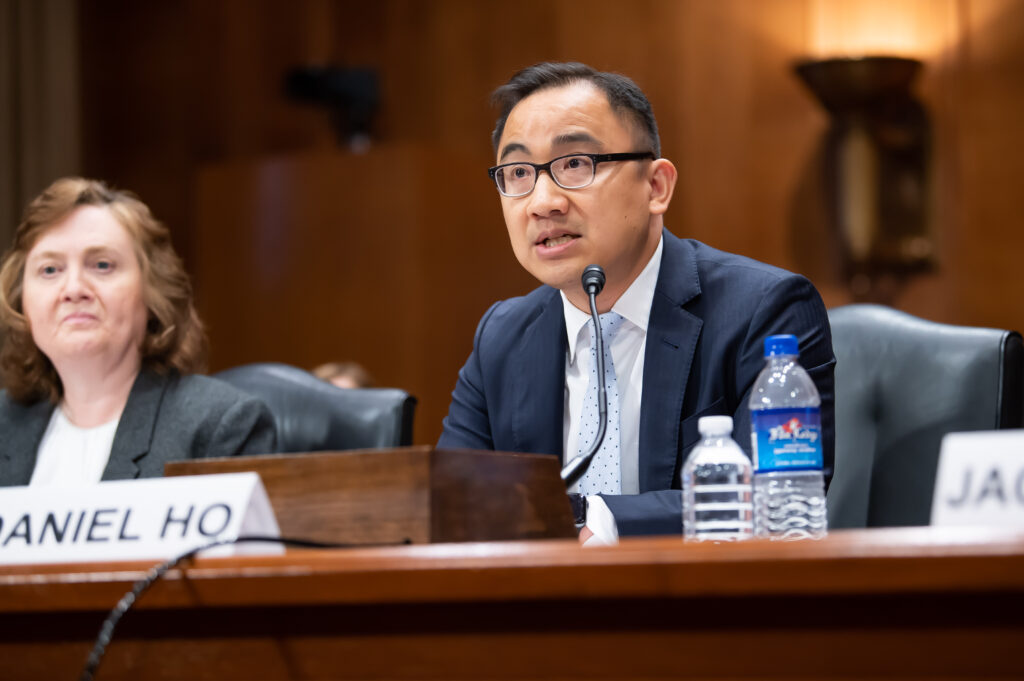 (AGENPARL) - Roma, 25 Maggio 2023
(AGENPARL) - Roma, 25 Maggio 2023(AGENPARL) – STANFORD (CA) gio 25 maggio 2023

On May 16, 2023, Professor Daniel E. Ho1 presented testimony to the U.S. Senate Committee on Homeland Security and Governmental Affairs’ hearing on artificial intelligence. Ho, the William Benjamin Scott and Luna M. Scott Professor of Law, co-authored “Measuring and Mitigating Racial Disparities in Tax Audits,” which explores the challenges of government agencies’ use of data-driven algorithms to allocate enforcement resources. One of the research team’s key findings is that Black taxpayers are 3 to 5 times more likely to be audited. Ho serves as an appointed member to the National Artificial Intelligence Advisory Commission, advising the White House National AI Initiative Office, and as Senior Advisor on Responsible AI to the U.S. Department of Labor. He is also a member of the Committee on National Statistics of the National Academies of Science, Engineering, and Medicine, and a Public Member of the Administrative Conference of the United States. Here is the full testimony with links to coverage.
Chairman Peters, Ranking Member Paul, and Members of the Committee, it is an honor to speak with you today.
I’m a professor at Stanford University, where I serve as Associate Director of Stanford’s Institute for Human-Centered AI (or HAI) and Director of the Regulation, Evaluation, and Governance Lab (or RegLab). I also serve as a Member of the National AI Advisory Committee (NAIAC) and the RegLab works with numerous federal agencies, but I speak to you today in my personal capacity.
The U.S. government has an exceptional opportunity. It can seize this moment of AI innovation to modernize federal programs, make agencies more effective, catalyze scientific advancements, and protect civil rights and liberties for the benefit of all Americans. Doing so will strengthen America. But strategic leadership, critical investments in the federal workforce and digital infrastructure, and adapting procurement to AI are preconditions.
Fonte/Source: https://law.stanford.edu/2023/05/25/opportunities-and-risks-of-artificial-intelligence-in-the-public-sector/

